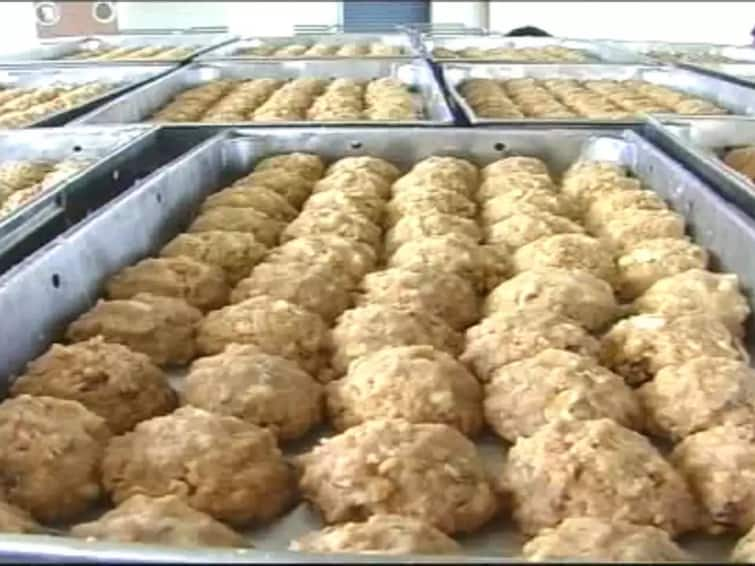The recent controversy surrounding the Srivari Laddu, the sacred prasadam of the Tirumala Venkateswara Temple, has ignited fierce debate in Andhra Pradesh. Allegations by the state Chief Minister N. Chandrababu Naidu about the use of animal fat, including beef and fish oil, in the laddus have sent shockwaves across the nation, raising serious concerns about religious faith, political opportunism, and governance. Naidu, armed with lab reports allegedly conducted by the National Dairy Development Board (NDDB), claims that the Srivari Laddus, a revered offering to Lord Venkateswara, are no longer pure vegetarian. For millions of Hindus, the prasadam is sacred, and any suggestion of contamination with animal products is deeply disturbing. Naidu’s coalition government, which returned to power in the state after inflicting a humiliating defeat on Y.S. Jaganmohan Reddy’s YSRCP, swiftly reconstituted the Tirumala Tirupati Devasthanam’s (TTD) Board and appointed Shyamala Rao as the new Executive Officer. Soon after, lab tests were conducted, allegedly revealing the disturbing presence of animal fats in the laddus. The former YSR Congress Party (YSRCP) government, headed by Y.S. Jaganmohan Reddy, had been facing accusations of mismanagement in TTD administration since it took power in 2019. The temple, which attracts 70,000 to 80,000 pilgrims daily, is one of the world’s wealthiest religious sites, and any disruption to its sanctity was bound to have severe political as well as religious ramifications. The temple’s handling had been under scrutiny ever since Jagan’s government allegedly allowed non-Hindus to occupy key positions, violating Agama Shastra guidelines that govern temple rituals. One of the key controversies involved Jaganmohan Reddy government’s appointment of his uncle, Y.V. Subba Reddy, as TTD Chairman. The opposition, led by Naidu, seized upon this to question the YSRCP’s commitment to preserving Hindu traditions.

At the core of the Srivari Laddu controversy is the alleged decline in quality following the switch in ghee suppliers. For years, the laddus were prepared using ghee from Karnataka’s Nandini Milk Dairy, known for its high-quality products. However, during the COVID-19 pandemic, when temple revenues fell sharply, the TTD opted for a cheaper Tamil Nadu-based supplier, which allegedly led to a noticeable drop in the quality of the laddus. In response to growing complaints about the taste, the new Executive Officer, Shyamala Rao, recently terminated the Tamil Nadu supplier’s contract and reinstated Nandini Dairy as the principle supplier of ghee. While this move may address immediate concerns, it raises questions about why the switch was made in the first place and whether the alleged cost-cutting measures justified compromising the laddus’ quality. The Srivari Laddu controversy is as much about faith as it is about politics. For millions of Hindus, the laddus are not just a sweet but a manifestation of their devotion to Lord Venkateswara. Any suggestion that the sacred prasadam has been tainted with animal products is bound to evoke strong emotional reactions. However, the timing of Naidu’s revelations raises suspicions that this issue is being exploited for political gains. The opposition TDP, along with its allies—Pawan Kalyan’s Jana Sena Party and the Bharatiya Janata Party (BJP)—has been relentless in its criticism of Jagan’s administration of the TTD. They have accused the government of undermining Hindu traditions and violating Agama Shastra rituals. Given the central role religion plays in Andhra Pradesh politics, these allegations could seriously damage Jagan’s credibility, especially among the state’s Hindu voters. On the other hand, if Naidu’s allegations are proven false (as YSRCP supporters express concerns that the prasadam sample sent for lab testing by the current government may have been manipulated), it is likely to backfire on the ruling coalition, leading to a loss of credibility. The stakes are high for both the TDP and the YSRCP as they navigate this delicate issue. The Srivari Laddu controversy underscores a broader problem in Indian politics: the intersection of religion and governance. Ideally, religious institutions like the TTD should be insulated from political interference to preserve their sanctity. However, in reality, temple administration—particularly one as influential as the TTD—often becomes a political battleground. Control over religious institutions brings significant influence, especially in a state where religion holds such sway over the electorate. Hence, the demand to relieve Hindu temples from government control appears justified. The controversy surrounding the Srivari Laddu is far from over.





